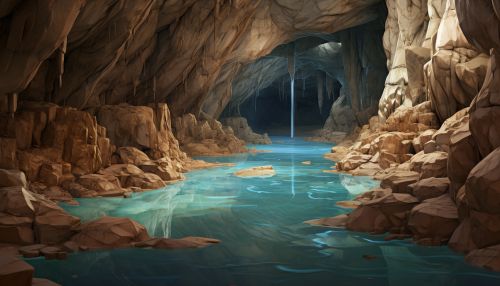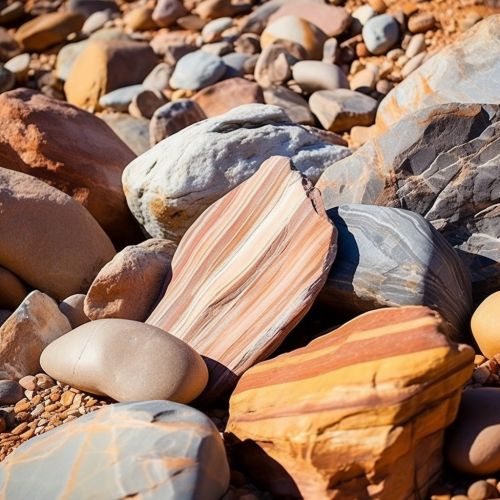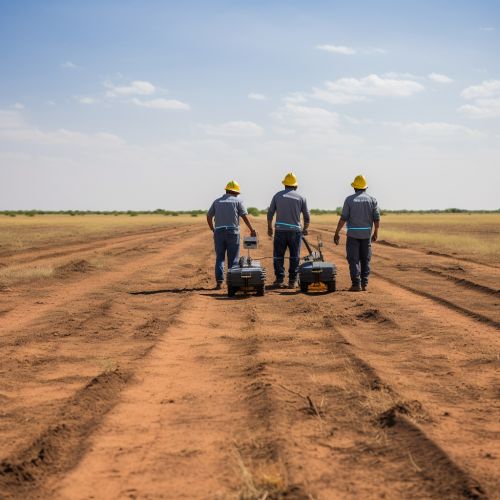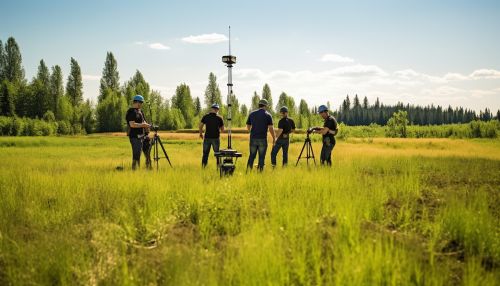Role of Geology in Groundwater Management
Introduction
Groundwater management is a critical aspect of water resource management, ensuring the sustainable and efficient use of groundwater resources. It involves the application of various scientific disciplines, including geology, hydrology, and environmental science. Geology plays a crucial role in groundwater management as it determines the occurrence, movement, and quality of groundwater.
Geology and Groundwater
Geology is the study of the Earth's solid materials, including rocks and the processes by which they change over time. It provides essential information about the structure and composition of the Earth's crust, which significantly influences the occurrence and movement of groundwater.
Groundwater is the water found underground in the cracks and spaces in soil, sand, and rock. It is stored in and moves slowly through geologic formations of soil, sand, and rocks called aquifers.
Aquifers
Aquifers are underground layers of water-bearing permeable rock, rock fractures or unconsolidated materials (gravel, sand, silt, or clay) from which groundwater can be extracted using a water well. The study of water flow in aquifers and the characterization of aquifers is called hydrogeology.


Aquifers are classified into two types: unconfined and confined. Unconfined aquifers are those into which water seeps from the ground surface directly above the aquifer. Confined aquifers are those in which an impermeable dirt/rock layer exists that prevents water from seeping into the aquifer from the ground surface located directly above. Instead, water seeps into confined aquifers from farther away where the impermeable layer doesn't exist.
Geological Factors Influencing Groundwater
Several geological factors influence the occurrence and movement of groundwater. These include the type of rock or sediment, the presence of fractures and their orientation, the degree of weathering, and the presence of karst features.
Rock Type
The type of rock or sediment in an area can greatly influence the occurrence and movement of groundwater. For example, permeable rocks such as sandstone, limestone, and fractured igneous rocks can store and transmit large amounts of water, making them good aquifers. In contrast, impermeable rocks such as granite and shale do not allow water to move through them easily, making them poor aquifers.


Fractures
Fractures in rocks can significantly influence the movement of groundwater. Water can move more easily through rocks with a high density of fractures. The orientation of these fractures also influences the direction of water flow.
Weathering
The degree of weathering can also affect groundwater. Weathering can increase the permeability of rocks, allowing more water to infiltrate and recharge the aquifer.
Karst Features
Karst features, such as sinkholes and caves, are formed by the dissolution of soluble rocks, including limestone and dolomite. Karst aquifers are complex and highly variable due to the presence of these features, which can allow rapid movement of groundwater.


Role of Geology in Groundwater Management
Understanding the geology of an area is vital for effective groundwater management. It allows for the prediction of where groundwater might be found, the direction it might flow, and how quickly it might move. It also provides information about the quality of the groundwater and potential contamination risks.
Groundwater Exploration
Geological information is used in groundwater exploration to identify potential aquifer locations. Geological maps, borehole data, and geophysical surveys are used to determine the depth, extent, and yield of an aquifer.


Groundwater Monitoring
Geological information is also used in groundwater monitoring. Monitoring wells are often installed in specific geological formations to monitor changes in groundwater levels and quality.
Groundwater Protection
Understanding the geology of an area can help in the protection of groundwater resources. For example, in areas with karst geology, where the risk of groundwater contamination is high, special management practices may be needed to protect the aquifer.
Conclusion
Geology plays a critical role in groundwater management. It provides essential information about the occurrence, movement, and quality of groundwater, which is vital for groundwater exploration, monitoring, and protection. Understanding the geology of an area can help ensure the sustainable and efficient use of groundwater resources.
